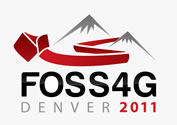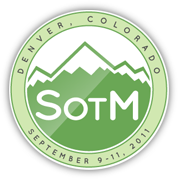Lifemapper Moves Forward: Bringing Together Geospatial and Biodiversity Informatics Tools to Save the World
Lifemapper (www.lifemapper.org) is a research project funded by the National Science Foundation bringing together open source geospatial and biodiversity informatics tools to facilitate bio-geographical research, to demonstrate potential climate change effects to school children, and to publicize the utility of museum specimen data. Lifemapper predicts current and future species distributions by combining specimen data from globally distributed natural history museums and climate data from Worldclim (http://www.worldclim.org/) and climate modeling centers working with International Panel on Climate Change (IPCC) scenarios in openModeller (http://openmodeller.sourceforge.net), an open-source modeling framework.
The Lifemapper system has two main components, the frontend and pipeline. The frontend provides data and analysis tools as OGC-compliant web services, through Lifemapper plug-ins to open-source desktop softwares, such as Quantum GIS (QGIS, http://www.qgis.org/) and VisTrails (www.vistrails.org), and through our website. The Lifemapper backend pipeline moves user requests, data, and results between a PostGIS-enhanced PostgreSQL database and a 64-node compute cluster. The pipeline responds to user queries, data and analysis requests and recalculates species distribution maps when inputs are updated. The backend system and client libraries are written in Python; Python libraries for GRASS, R, GDAL/OGR and a variety of other open-source libraries support the underlying analyses.
While species distribution modeling has been available through our web services for some time, multi-species, multi-scale macro-ecological analysis is our latest challenge. In addition to quantifying landscape and distribution metrics, climate-related migration, and changing species interactions, we are enabling visualization of the complex relationships between layers. QGIS provides a powerful and stable platform for the macro-ecological plug-ins we are building, and promises to provide fresh insights into what is happening in our world, and the ways we can respond.
Aimee Stewart has degrees from the University of Kansas in Computer Science and Geography. She has worked in the GIS and Remote Sensing fields for the last 13 years, focusing on software development and mapping applications in the Informatics department of the KU Biodiversity Institute since 2001. After her initial seduction by proprietary software, she came to her senses and now uses open source tools whenever possible.











